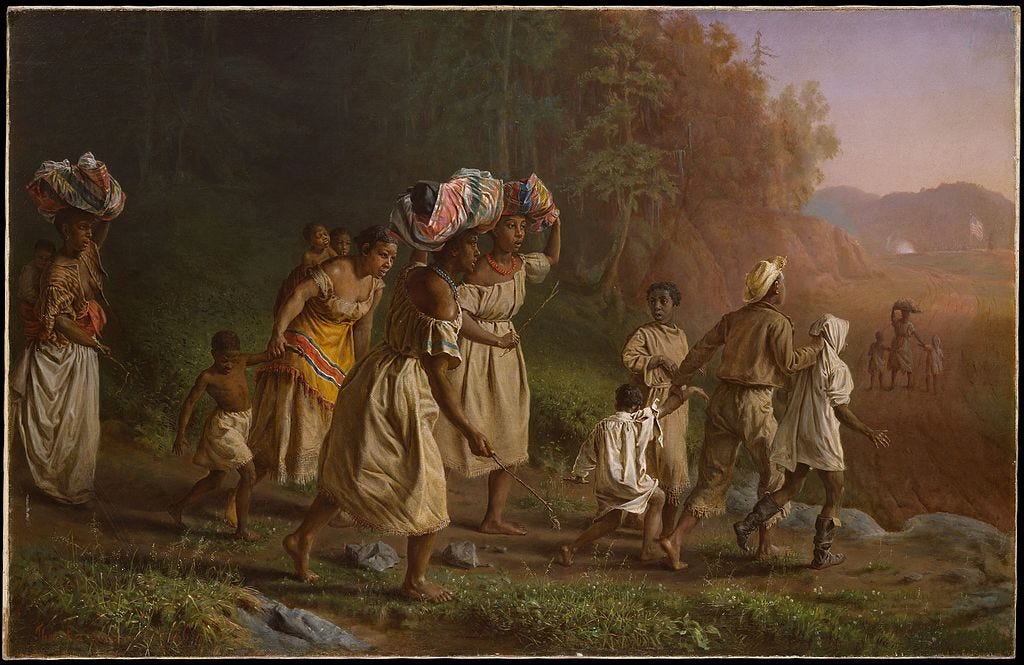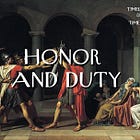Unquiet Liberty
There’s power in what we allow ourselves and others to say—and not to say.

“I prefer liberty with unquiet to slavery with quiet.”
— Sallust, c. 35 BC
When I was growing up, I never heard of Juneteenth. Odds are, you didn’t either.
In recent years it has become more commonly recognized — until it was finally named a federal holiday. The muted struggles of generations of enslaved people are being widely talked about.
It wasn’t until I saw Watchmen on HBO that I learned of the 1921 Tulsa Race Massacre. The opening scene laid out the horrific events in such grisly detail that I wondered if it was pure fiction.
It was not fiction, but a fact. The wealthiest Black community in America was wiped out in a brazen attack that left hundreds dead. My American history classes never taught that, but thanks to a television show and a keener interest in the topic around its 100th anniversary resulted in deep coverage, such as the New York Times’ interactive story on it.
The Silence is Deafening
But these errors of omission in teaching certain parts of history — whether intentional or not — are indicative of the power of silence.
In particular, ensuring silence of those inconvenient truths that we may not like to hear.
One of the most frustrating things to witness, either as a bystander or as a participant, is when someone is unable to speak up when they’re the victim of some injustice.
This is the common theme spurring on activists in many corners, from voting rights to the death penalty, workers’ rights to women’s rights, and recent book bans, crackdowns on LGBTQ+ rights, and more.
When their voices are silenced, it’s a power move by those who want to ensure the opposing view doesn’t get attention.
But when we unite, we can give a voice to the voiceless.
The Power of Silence
Think about the power of silence for a moment.
We can use moments of silence in our life to our advantage. Moments of serenity can bring great clarity or calm.
We can choose to remain silent in meetings until after everyone has spoken. This gives you the advantage of being able to observe the dynamics and process what everyone has said before you weigh in. Restraint, in this case, conveys gravitas and thoughtfulness.
And increasingly, we’re seeing the weaponization of culture wars, as various factions of the public positions on societal issues. When companies respond with silence, it can be interpreted as complicity — or at the very least apathy.
As Lou Paskalis, chief strategy officer for Ad Fontes Media observed in AdAge:
“[M]ost advertisers are sitting on the sidelines for fear of getting swept up in the culture wars waging all around us.”
It was echoed at Cannes this week as well:
He goes on to recommend that responsible brands (and leaders) ought to support quality journalism, with the potential to “be the next leaf in marketers’ environmental, social, and governance (ESG) portfolios.”
Silence’s Chaotic Cousin: Misinformation
This is especially important in the current climate. The GOP is waging a legal campaign against disinformation researchers at universities and think tanks. According to FrameLab, their objective is clear:
“To make it impossible to distinguish between lies and truth. By attacking journalists, fact-checkers and disinformation researchers, the Republican Party telegraphs a desire to dismantle any means of discerning fact from fiction.”
This is another method of silencing critics: confusion.
But let’s be clear: determining to remain silent on any given topic is a conscious choice. We don’t have to find something to say about every outrage. After all, that could be a full-time job.
But choosing to speak up takes courage.
“Happiness depends on being free, and freedom depends on being courageous.”
— Pericles, c. 431 BC
Each of us has a set of values by which we live. Consistently adhering to our values is how we build integrity.
Brand integrity should be no different: if there is something that fundamentally flies in the face of what a brand stands for, leaders ought to speak up and speak out.
Just because it may be uncomfortable or unpleasant is no reason to shirk one’s responsibilities.
Uncertain times require courageous actions.
Your actions will reveal your unwavering values.
There’s so much to learn,
P.S.
You may want to check out our follow-up essay on how to strategically use silence to your benefit in certain situations.
How to Respond to an Act of Disrespect
“Moderation in temper is always a virtue; but moderation in principle is always a vice.” — Thomas Paine Have you ever found yourself speechless? Maybe you find yourself in a familiar situation and someone — most likely someone familiar or close to you — says something completely unexpected.









In addition to the general population learning about Juneteenth and the Tulsa Race Massacre in the past few years, more people will soon know of the Osage murders (also in OK in the 1920s) when Martin Scorsese's new movie comes out this fall, Killers of the Flower Moon. It details the truly despicable things greedy white families did to indigenous communities in the early 1920s in pursuit of oil claims. Get ready!